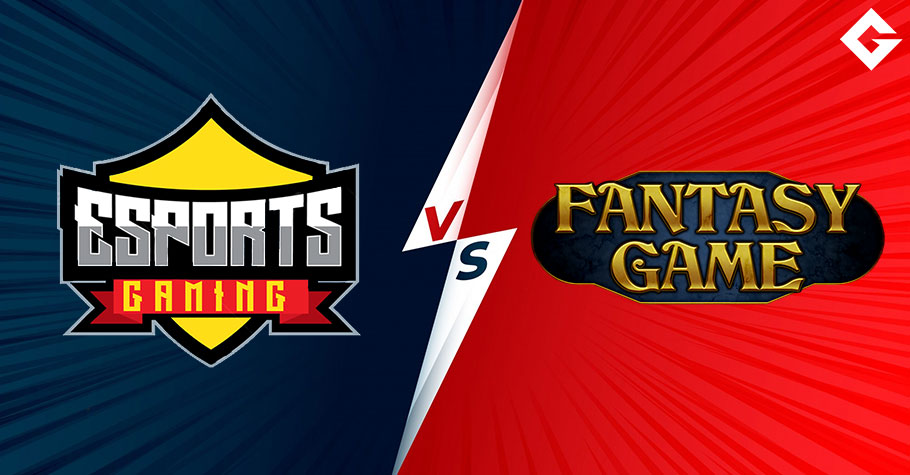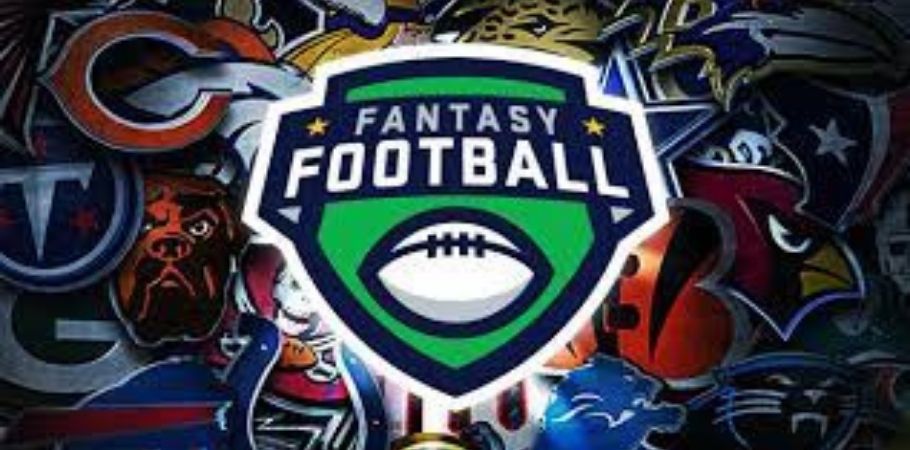 Esports
Esports
5 Basic Differences Between Esports And Fantasy Gaming
In recent years, the gaming industry has experienced a significant surge in popularity, captivating both casual and hardcore gamers alike. However, when it comes to gaming, two terms are often confused: “Esports” and “Fantasy Gaming.” While video games are the common denominator between the two, the truth is that Esports and Fantasy Gaming represent entirely different facets of the gaming realm.
In this article, we will delve into the fundamental differences between Esports and Fantasy Gaming, exploring the unique characteristics that set them apart and examining how they cater to distinct audiences. By the end of this article, you will have a clear understanding of these two diverse gaming genres, as well as a deeper appreciation for what makes each of them truly unique.
Esports
Firstly, let’s explore the world of Esports. Esports, short for electronic sports, refers to the competitive playing of video games professionally. In other words, it is the virtual equivalent of traditional sports. Esports tournaments attract skilled gamers worldwide, who compete against each other in various video games.
These tournaments may take place online or in person, offering substantial cash prizes to the winners. The most popular Esports games include League of Legends, Dota 2, and Counter-Strike: Global Offensive, among others.
Fantasy Gaming
On the other hand, Fantasy Gaming is a completely different ballgame. In Fantasy Gaming, players create virtual teams of professional athletes from various sports leagues, such as the NBA, NFL, or MLB. These virtual teams compete against each other based on real-life performance statistics of the professional athletes they comprise.
The goal of Fantasy Gaming is to create the most successful team based on the athletes’ real-life performances and earn points for their performance. These points are then tallied up, and the team with the most points at the end of the season is declared the winner.
Esports vs Fantasy Gaming
While Esports and Fantasy Gaming share a common thread of video games, their audiences are vastly different. Esports tournaments attract a predominantly younger, male, and tech-savvy audience, while Fantasy Gaming appeals to a broader audience, including men and women of all ages.
Esports tournaments are often watched live on streaming platforms like Twitch or YouTube, while Fantasy Gaming occurs on various online platforms and mobile applications.

Video games may unite the worlds of Esports and Fantasy Gaming, but they represent two entirely different facets of the gaming world. Esports is the competitive playing of video games on a professional level, while Fantasy Gaming is the creation of virtual teams of professional athletes from various sports leagues.
Each gaming genre caters to unique audiences and offers distinct experiences that appeal to different interests. It is safe to say that the future of gaming is bright, and one can only imagine what innovative and exciting developments may lie ahead in the gaming world.
Competing in the Virtual Arena
E-sports and fantasy gaming may seem similar, but they cater to distinct passions. E-sports revolves around competitive video gaming, where players face off in organized tournaments. On the other hand, fantasy gaming involves creating virtual teams of real players across various sports leagues, with outcomes based on their real-life performances. At 91club, enthusiasts immerse themselves in both realms, fostering a vibrant community that celebrates the nuances of each gaming experience.
Differences Between Esports And Fantasy Gaming
- Nature of Gameplay
- Skill and Strategy
- Involvement of Real-life Athletes
- Revenue Generation
- Community and Spectatorship
Nature of Gameplay
Before we delve into the specifics, let us start with the simplistic definitions of each and what they stand for.
Esports:
Esports is a form of professional video gaming where teams or individuals compete against each other in popular games like League of Legends, Counter-Strike: Global Offensive, and Dota 2.
The games require skill, strategy, and teamwork to outperform opponents and secure victory. Esports has grown in popularity over the years and has become a multi-billion dollar industry.
Companies often sponsor professional esports players and compete in major tournaments for large prize pools. The popularity of esports has led to the formation of professional leagues and teams, as well as the development of specialized equipment and software.
Esports is no longer just a hobby but a legitimate career option for those who have a passion for gaming and possess the necessary skills to compete at a high level.
Fantasy Gaming:
Fantasy gaming is a type of game that involves creating and managing virtual teams of real-life professional athletes from different sports. In this type of game, players compete against each other based on the statistical performance of these athletes during actual games. The success of fantasy gaming depends on selecting the right players and making strategic decisions to maximize points.
It is a popular pastime for sports enthusiasts who enjoy the thrill of competition and the challenge of strategy. The game has become increasingly popular in recent years, with various platforms offering the game to players all over the world.
Fantasy gaming provides a unique opportunity for sports fans to engage with their favourite sports in a new and exciting way. It’s a game that requires a combination of knowledge, skill, and luck, making it a fun and exciting experience for players of all levels.
Skill and Strategy
Esports:
Esports is a highly demanding field that requires players to have exceptional skills, strategies, and reflexes. Professional gamers invest much time and effort to perfect their abilities, learn game mechanics, and develop unique approaches to outsmart their competitors.
To succeed in esports, players must possess excellent hand-eye coordination, quick decision-making skills, and the ability to adapt to changing game scenarios.
The intense focus, dedication, and training that esports players undergo make them stand out as true athletes in their own right. With esports gaining popularity worldwide, it’s clear that these players have an important place in the future of competitive gaming.
ALSO READ: Find Best Online Fantasy Sports Sites 2023
Fantasy:
While fantasy gaming also requires strategic decision-making, the emphasis is more on analysis and prediction rather than individual skill. Participants must assess player performance statistics, injuries, and other factors to select the best team composition.
The outcome of fantasy gaming relies heavily on the ability to predict player performance and make intelligent choices based on available data.
Involvement of Real-life Athletes:
Esports:
Esports is a form of competitive gaming exclusively played in virtual worlds. The players compete using pre-designed characters within the game’s virtual environment. These tournaments have become a platform for professional gamers to showcase their skills and become admired celebrities in their own right.
Esports has transformed the gaming industry and has become a global phenomenon with millions of fans worldwide. The players are known for their gaming prowess and are often praised for their exceptional abilities.
The popularity of esports has led to the creation of many professional leagues and teams, with players earning millions of dollars in prize money and sponsorships. The esports industry is constantly evolving and growing, with new games, players, and fans joining the community daily.
Fantasy Gaming:
Fantasy gaming is a popular activity where participants create teams of real-life professional athletes. These athletes’ actual performance in live sporting events determines the success or failure of each fantasy team, and participants earn points based on their chosen athletes’ performances.
The thrill of fantasy gaming lies in the fact that the players’ performance directly influences the success of the fantasy team. As a result, participants need to keep a close eye on the performance of their selected athletes and make strategic decisions to score the most points. Fantasy gaming is a fun and exciting way to enjoy sporting events and allows participants to feel more involved in the games they love.
Revenue Generation
Esports:
Esports, or competitive video gaming, has emerged as a rapidly growing industry with a valuation of several billion dollars. This industry generates revenue through various channels such as sponsorships, advertising, ticket sales, and media rights.
With major esports tournaments drawing in large audiences both online and offline, there has been significant growth in partnerships with brands and companies, leading to lucrative opportunities. The increasing popularity of video games has propelled the rise of esports, the widespread availability of high-speed internet, and the growth of social media platforms.
In recent years, the industry has also gained recognition as a legitimate sport, with professional teams, athletes, and leagues being established. As the industry grows, it is poised to become a mainstream entertainment option, attracting a diverse audience of fans and players.
Fantasy Gaming:
Fantasy gaming also generates significant revenue, primarily through user subscriptions and advertisements on gaming platforms. Additionally, some platforms charge entry fees for participation in fantasy leagues and offer cash prizes to winners. The popularity of fantasy gaming has led to partnerships with sports organizations and media networks, further boosting revenue streams.
5. Community and Spectatorship:
Esports:
Esports has fostered a vibrant and passionate community of players and spectators. Online streaming platforms like Twitch have become the go-to destination for esports enthusiasts to watch live matches, engage with fellow gamers, and support their favourite teams.
Esports events often draw large crowds, with spectators attending live tournaments to experience the energy and excitement firsthand.
Fantasy Gaming:
Fantasy gaming, while also having a significant following, primarily attracts a different kind of audience. Participants in fantasy gaming are more focused on analyzing player statistics and competing against each other based on their team’s performance.
Spectatorship in fantasy gaming is typically limited to checking scores and following updates rather than actively watching live events.
In conclusion, esports and fantasy gaming are two vastly different activities that involve competitive gaming. Esports involve actual gameplay played by professional gamers, while fantasy gaming involves managing a virtual team of real-life players.
The two activities have different platforms, audiences, and gameplay styles, making them distinct. Despite these differences, both esports and fantasy gaming have gained immense popularity in recent years and are enjoyed by millions of people worldwide.
For more fantasy sports news and poker promotions, keep reading GutshotMagazine.com. Follow us on Facebook, Instagram, Twitter, and Telegram.

Aakash Mishra is a fantasy writer and prediction aficionado. Being a cricket enthusiast himself, he loves to relate and propagate about how fantasy sports platforms can be advantageous in our day to day life. Along with foretelling match results, he enjoys writing about game forecasts for all fantasy sports.







